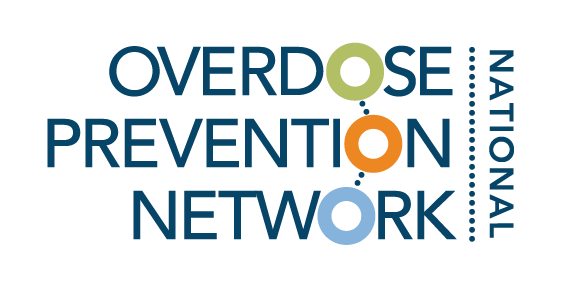
Resource Library
Toolkits, guides, and other resources vetted by experts in overdose prevention.
Filter by category and tags, or search by keyword (ex. COVID-19, harm reduction).
Fostering Resilience and Recovery: A Change Package
To better address trauma in primary care, Kaiser Permanente and the National Council for Mental Wellbeing (National Council) launched the Trauma-Informed Care Primary Care: Fostering Resilience and Recovery initiative to develop, test, disseminate and scale a field-informed Change Package. Implementing trauma-informed approaches within primary care marks a fundamental shift in care delivery that supports improved utilization of services, improved patient outcomes, increased staff satisfaction and healthier work environments.
Trauma-Informed Approaches Toolkit
This toolkit is intended to provide foundational information, language, and an introduction to tools and assessments for agencies and providers, both those who provide direct services and funders.
Trauma and Mass Incarceration
Philomena Kebec emphasizes the relationship between trauma and incarceration, specifically the lack of support given to those who have historically been oppressed.
SPACECAT Tool
Preventing adverse childhood experiences (ACEs), suicide, and overdose involves cross-sector collaboration focused on impacting risk and protective factors at the individual, relationship, community, and societal levels. The Suicide, Overdose, and Adverse Childhood Experiences Prevention Capacity Assessment Tool (SPACECAT) was created to help state, territorial, and local health agency staff identify opportunities to work at the intersection of these public health issues to maximize resources and impact.
NCIPC Funding Webpages for Overdose, Suicide, and ACEs
The CDC NCIPC Budget & Impact webpage has been refreshed and now includes State Investment Snapshots on Overdose, Suicide, and ACEs that communicate funding and programmatic data across their three priority areas at the state-level.
Mental Health First Aid
Mental Health First Aid is a skills-based training course that teaches participants about mental health and substance-use issues. Learn more about it here.
988: Reimagining Crisis Response
In 2020, the nation took a significant step forward with the enactment of the National Suicide Hotline Designation Act, a bill NAMI advocated for that created a nationwide three-digit number (988) to assist people experiencing a mental health or suicidal crisis. This fact sheet delves deeper into the purpose of the 988 line, and what it hopes to achieve.
988 Suicide & Crisis Lifeline
The new 988 mental health hotline is a way of providing 24/7, free and confidential support to people in suicidal crisis or emotional distress. This fact sheet from SAMHSA answers some FAQs relating to the implementation and sustainability of the 988 line.
Why Partner with Behavioral Health?
Trauma expert Brooke Briggance describes the strong relationship between behavioral health and overdose prevention, encouraging us to integrate services to combat substance use disorder.
Mental Health First Aide: Why Get Certified?
Trauma expert Brooke Briggance promotes mental health first aide training, a valuable method of supporting overdose prevention strategies through de-escalation and behavioral health.
Mental Health America –2022 State of Mental Health
Mental Health America (MHA) is committed to promoting mental health as a critical part of overall wellness. Use this website to learn more about how MHA advocates for prevention services for all, early identification and intervention for those at risk, integrated services, care and treatment for those who need them, and recovery as the goal.
ACEs Aware
The ACEs Aware initiative is a first-in-the nation effort to screen patients for Adverse Childhood Experiences (ACEs) to help improve and save lives. Use this website to learn more how ACEs Aware strives to create a better world for our children, families, and communities by working together across sectors to prevent and address the impact of ACEs and toxic stress.
Seven Types of Rest
This handout from the Spring 2022 COPN convening offers seven ways we can help our brain meet its need to rest and heal, particularly when undergoing toxic stress or burnout.
Self-Care Strategies Guide & Worksheet
This self-care guide allows you and your organization to enhance its trauma-informed care practices through group reflection and discussion.
Why partner with behavioral health?
Brooke Briggance covers why it is critical for people working in substance use to partner with those in the mental and behavioral health fields.
Coping Tips for Traumatic Events and Disasters
Emotional distress can happen before and after a disaster. This fact sheet offers coping strategies that can help when dealing with the aftermath of emergencies or disasters.
New Training Webpage and Messaging Products for ACEs, Overdose, and Suicide Prevention
This website provides resources for addressing the relationship between trauma, substance use disorder, and mental health.
Trauma-Informed Care for Opioid Use Disorder
This guide provides an understanding of the principles and practices of trauma-informed care is a helpful way to understand and connect with patients, and improve the experiences and outcomes of care for everyone involved.
5 Ways to Create Compelling Messages about Childhood Trauma Using Data
This article provides five ways to strategically present data regarding childhood trauma. These five tips for presenting numbers aim to advance efforts to reduce adversity, promote resilience and improve health outcomes.
TED, “How childhood trauma affects health across a lifetime”
Childhood trauma isn’t something you just get over as you grow up. Pediatrician Nadine Burke Harris explains that the repeated stress of abuse, neglect and parents struggling with mental health or substance abuse issues has real, tangible effects on the development of the brain. This unfolds across a lifetime, to the point where those who’ve experienced high levels of trauma are at triple the risk for heart disease and lung cancer. An impassioned plea for pediatric medicine to confront the prevention and treatment of trauma, head-on.




















